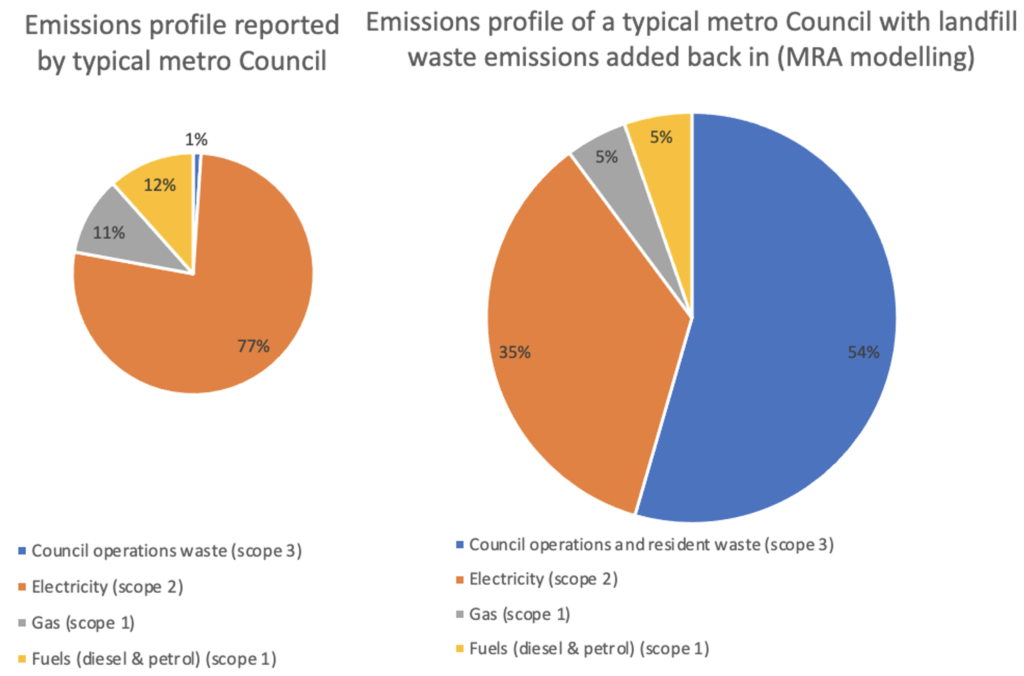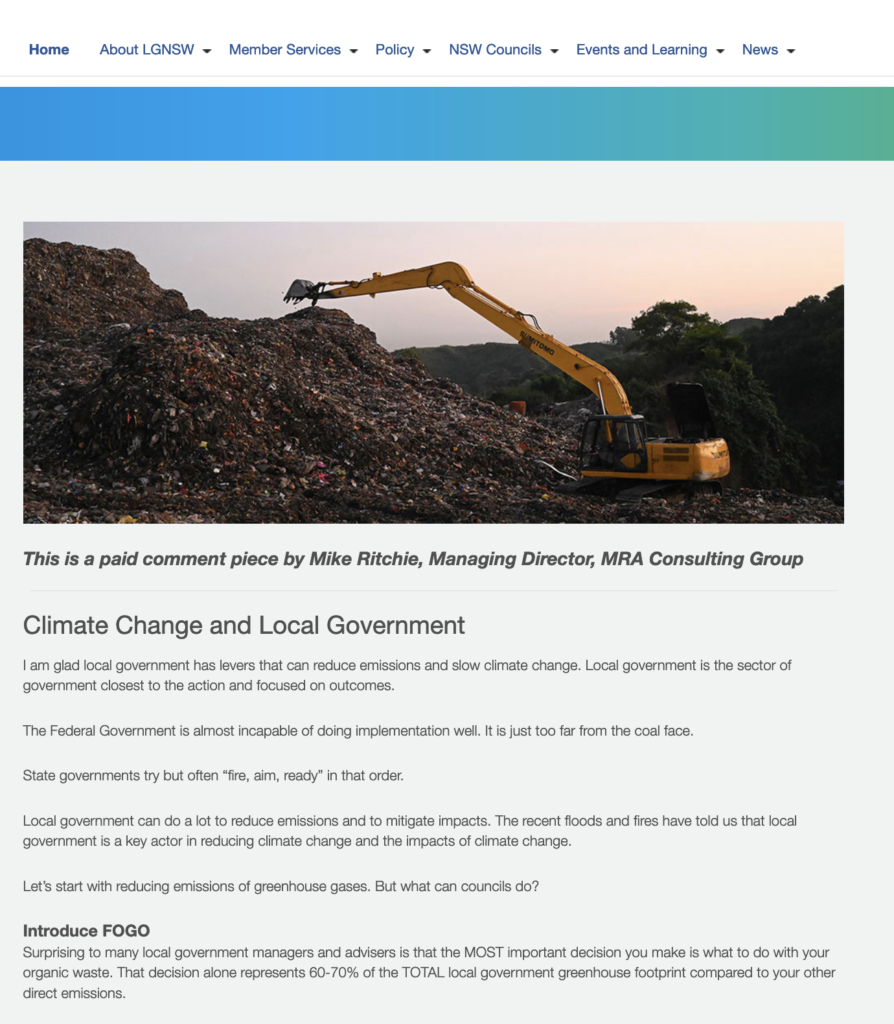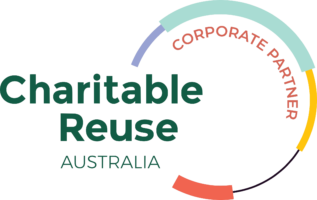Letter to Local Government- Climate Change and Local Government
By: Mike Ritchie, MRA Consulting Group
Local Government is the sector of government closest to the action and focused on outcomes.
The Federal Government is almost incapable of doing implementation well. It is just too far from the coal face.
State Governments try but often “fire, aim, ready” in that order.
Local Government can do a lot to reduce emissions but also to mitigate impacts.
The recent floods and fires have told us that Local Government is a key actor in reducing climate change and the impacts of climate change.Let’s start with reducing emissions of greenhouse gases. What can Councils do?
Introduce FOGO (Food and Garden Organics collection)

Surprising to many Local Government managers and advisers, the MOST important decision you make is what to do with your organic waste. That decision alone represents 60-70% of the TOTAL Local Government greenhouse footprint compared to your other direct emissions. Why?
Because organic waste in landfill decomposes (anaerobically) to generate methane, a very potent greenhouse gas. It has a global warming potential of 28 times that of carbon dioxide.
Stopping organics going into landfill massively reduces your direct emissions. Much more so than street lighting, pool heating, vehicle usage etc. These are demonstrated in the following figure.

All other emission reductions are dwarfed by the organics decision.
That is why many Councils are introducing FOGO (Food Organics and Garden Organics) collection and composting services.
By the way if you don’t own your own landfill the Direct Emissions are owned by the landfill owner but YOU can still make the decision to reduce the emissions (and your costs) by implementing FOGO collections.
Most State Governments are now mandating FOGO in capital cities and NSW has mandated that all households have a FOGO system by 2030.
NSW has also mandated that large commercial food generators also have a food collection system by 2025.
These are all a recognition of the direct relationship between landfilling and greenhouse gas generation.
In fact, globally, 3% of all anthropogenic greenhouse gas emissions come from waste. 2% from landfills alone.
Power switch
Switch to solar power on all available electricity consuming assets such as pools, vehicles, street lighting etc.
Install solar on every rooftop you have available. Facilitate solar farms and wind farms in your region. Do the planning in advance and invite providers to your area. Offer long term renewable electricity purchasing agreements with providers to de-risk their investments.
Capture the gas from your landfill
If you own a landfill, it will be fugitively emitting methane. They all do. The amount is a matter of how well your gas collection system is working and whether you have one at all. Review it.
Energy Efficiency
Reduce your Council direct consumption of energy by undertaking an efficiency review. There are plenty of quality experts to help. That might be as simple as changing lightbulbs to LED.
Review Council’s financial investments to support renewables
What you do with your money matters. How you invest and how you spend ratepayers’ money sends signals to the market. Buy compost made from FOGO, buy asphalt made with recovered plastic and glass, buy zero emission power etc. Every little bit matters.
The floods and fires made mitigation an urgent task for Local Government.
Back in 2009 I helped draft the Climate Change Risks to Australia’s Coast assessment for the Federal Government. That report made a number of critical findings and predictions that have now, unfortunately, come to pass. These included:
- between 157,000 and 247,600 individual residential buildings could be at risk of inundation;
- extreme weather events are also likely to become more intense;
- we are not prepared; and
- the Federal Government will need to be the insurer of last resort because private insurers will not be able to accommodate the higher risk.
What can Local Government do?
- Be proactive
- Assess local risks
- Develop a Climate Action Plan
- Factor climate risks into all Council decisions (incl. waste management, funding, planning approvals)
- Reduce emissions and set an example for the local community
- Adopt complementary strategies for reducing (mitigation) and managing (adaptation) impacts
- Support the community to prepare
We are on a current trajectory to reach a 3 degree warming. The weather effects we are seeing now are just 0.8 degrees. A best case is stopping the increase at 1.5 degrees if we all move now and with urgency.
It is worth reminding readers that there are both lag effects and reinforcing feedback effects that we just cannot predict well yet. So even the pathway to 1.5 degrees has many risks and uncertainties.
But that is where we must aim, with urgency. Local Government can punch above its weight.
To help make this happen MRA will offer 20 hours free consulting to help develop your Climate Action Plan. That is sufficient to get a Plan in place. You just need to ask.
If you would like further information, please contact us at info@mraconsulting.com.au
This article has been published by the following media outlets:




